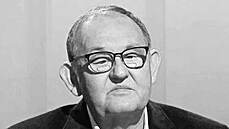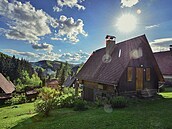“An agreement is still a ways away,” said Prime Minister Petr Nečas (Civic Democrats, ODS) following a meeting at Kramář vila Thursday of the leadership of the three coalition parties — ODS, Public Affairs (VV) and TOP 09. Apparently, the tentative agreement hammered out during a working dinner there the night before again gave way to quarreling. Little Wonder!
Only a few hours earlier, news server Týden.cz published secret recordings of former Public Affairs parliamentary club chairwoman MP Kristýna Kočí claiming that ODS members were plotting against Nečas. For some nine months some ODS members — led namely by parliamentary party leader Petr Tluchoř — had planned a government “putsch,” she said.
Kočí later claimed to have deliberately made these false charges because she knew she was being taped. Kočí further claimed that, knowing the recording would be used against her, she wanted to disclose the spying tactics of the VV and the ABL security firm founded by Vít Bárta, the party’s de factor leader and paymaster.
However, before she could get her “denials” in, Czech President Václav Klaus intervened. “The events of this afternoon on the political scene exceeded tolerable limits. My patience is at an end, and from every side I’m getting … all sorts of signals that the patience of Czech society has also worn thin,” Klaus said under the glare of television cameras. He called the leaders of the coalition parties (the so-called K9) to meet at the Castle the next morning.
He didn’t, however, take out the famous “brush” from December of last year. He merely asked Nečas, Foreign Minister Karl Schwarzenberg (TOP 09 party chairman) and Interior Minister Radek John (VV party chairman) to inform him of their respective parties’ positions and called upon them to act, as they later did, at the Kramář vila. Cameras and microphones were again on hand, and so the nation learned the “fatherland has a cloud overhead” but once again, thanks to the president, we’re out of trouble.
Klaus, however, was able to make an impact already on April 11, when Nečas delivered him the resignation of Transport Minister Vít Bárta (VV) and requests for two other VV ministers to go: John and Education Minister Josef Dobeš. The news server iDnes.cz had on April 7 published documents showing that Bárta had, by his own admission, entered into politics in order to win lucrative contracts for ABL, the security and detective agency he founded, which is now ostensibly under his brother’s control. Klaus either wasn’t moved by evidence of this dangerous attempt to privatize state power or he put greater weight on information he’d gotten from Bárta — with whom he’d met many times. Based on Article 74 of the Czech Constitution, most lawyers argue that acceptance of such resignations is required and should happen without delay.
In any case, Klaus declined to accept Bárta’s resignation (as is the president’s right) along with Nečas’ requests regarding John and Dobeš — although, based on article 74 of the Czech Constitution, most lawyers argue that acceptance of such resignations is required and should happen without delay. Klaus justified the step saying that Nečas should first submit him with a plan on how the coalition government would move forward. But the president has no constitutional right to do so.
Later, the president’s office unveiled a different legal opinion in the sense that the minister is for some of his activities irreplaceable and that the ministry could therefore not do without him even a second. Nečas could counter this argument by saying that he would temporarily administer the three ministries himself. Such a step was already taken by premiers Jan Stráský and Vladimír Špidla. But Nečas did not see fit to do so.
Financial exhaustion
The filth, which from Monday to Thursday spread through Czech politics, could have been reduced had the president dealt with the situation at once. In his defense, it must be said that the coalition has really split to its core, thanks to mutual stabs in the back and dirty tricks — and trust in the government has gone to the dogs. Therefore, it cannot be ruled out that the coalition simply cannot be mended and another government must be formed in its place.
This new government, however, cannot be created without either John and Bárta’s VV or the main center-left main opposition Social Democrats (ČSSD), whose former chairman Jiří Paroubek came on April 13 with the proposal for a minority ODS-TOP 09 government supported by the ČSSD. Under the leadership of its current chairman, Bohuslav Sobotka, however, rejected this option of joining a discredited partnership and does not want to be drawn into a grand coalition with the ODS, which as still Klaus’ dream, not at all.
According to the 2009 amendment of the constitution, it is possible to call early elections if a three-fifths majority of parliamentarians suggest it to the president. But even the ČSSD, which in the wake of the current coalition crisis is calling for such elections, doesn’t really mean it. In fact, no one wants early elections because the parties are drained financially from last year’s election campaign. Furthermore, the right-wing parties would likely lose such elections and the ČSSD probably win. But the left-wingers would be more certain of victory if they can keep the government its regular term, namely until Spring 2014, when the declared reforms of the Nečas government — an unpopular austerity package — will already have become a reality. But, unfortunately, it seems that won’t happen.
Government reconstruction
A reconstruction of the government, even at the price of establishing two more ministerial posts — so that the VV can be “distanced” from the Interior Ministry but still be inside the government — can probably be secured quite quickly. Along with amending the coalition agreement, a basic set of government priorities and a “timetable” to deliver them can be cleared quite routinely. VV, however, will not be a uniform and predictable party and will not come to terms with the split and squabbling ODS, part of which has Nečas “by the throat.” And TOP 09? It cannot stay untarnished from the coalition mud slinging forever, and someone will certainly throw some of the mud in its direction given time.
In conclusion, after any reconstruction, the government will not suddenly be transformed into a group of angels who can flutter their white wings a little and win the people’s trust immediately. It may take more than the three years that the Nečas cabinet has at its disposal to restore public confidence in politics, the ethical dimension of which has been lacking since the mid-1990s.
The author is a commentator for Czech Radio 1-Radiožurnál.














